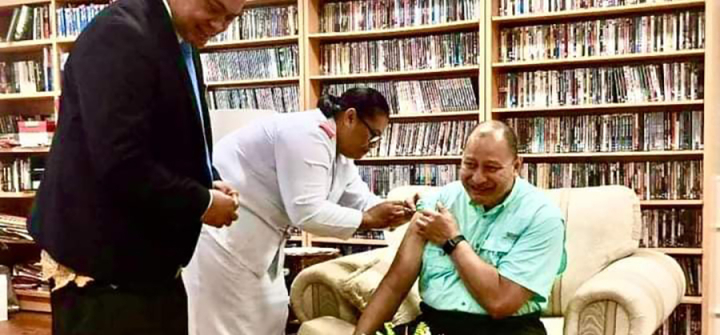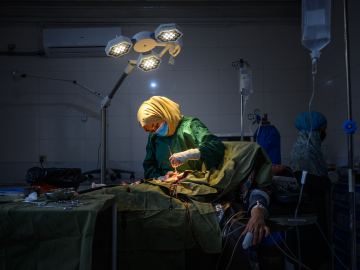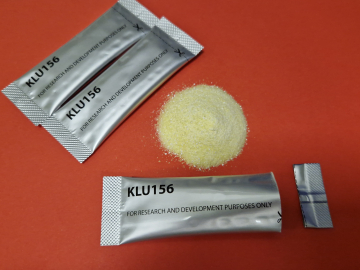Tonga is Still COVID-Free—How Long Can a Travel Ban Keep It That Way?
Nearly 18 months into the pandemic, the tiny island nation of Tonga still enjoys an extraordinary status: zero reported COVID-19 cases.
The country, population 105,000, is one of 6 Pacific Island nations that are still COVID-free, according to official numbers.
As a result, for much of the pandemic, social distancing and mask wearing have not the been a day-to-day reality seen elsewhere. Schools are open; large sporting events resumed long ago.
But the calculus may be shifting as the latest outbreak in neighboring Fiji puts the region on alert.
After seeing just a handful of cases and 2 COVID-19 deaths in the pandemic’s first year, Fiji’s COVID-19 death toll reached 254 this week, with 1,100 new daily cases and 13 more deaths reported on Monday alone. With Tonga's closest neighbor battling its worst outbreak yet, questions are being raised about how—and if—Tonga can stay COVID-free, and still move toward reopening its ailing economy and bringing home migrant workers still stranded abroad.
Since March 2020, Tonga has relied on a strict travel ban barring all international travel except for limited repatriation flights. That ban has now been extended until March 2022, amid concern that relaxing Tonga’s borders would amount to inviting the virus into the country.
But keeping Tonga isolated is far from a complete solution as the nation stands at a delicate crossroads: Thousands of migrant workers are stranded abroad and eager to come home, and the country’s key tourism industry is in tatters—and amid the rise of the Delta variant and lingering vaccine hesitancy, officials are seeking to avoid invoking a law that would require Tongans to get vaccinated.
“Even though Tonga has no COVID-19 cases, the closure of the borders has intense impact on people’s health, rights to nutrition, mental health…” said Yutaro Setoya, the officer in charge of the WHO Country Liaison Office for the Kingdom of Tonga, back in March.
It's not just tourists kept out of Tonga. Some 7,000 Tongan migrant workers remain stranded abroad awaiting repatriation—most working as fruit-pickers on farms in New Zealand and Australia as part of “labor mobility” program that brings $20 million a year into the Tongan economy. With the country’s tourism industry gutted by the travel ban, these workers’ remittances have been key to keeping the Tongan economy moving through the pandemic.
Usually contracted for 7 months under the program, many have stayed on for well over a year due to the travel ban—and repatriation flights are few and far between. Some workers whose contracts were ending just as the pandemic began haven’t been home for 2–3 years.
The Tongan government has come under fire for failing to prioritize the return of these seasonal workers, particularly after the death of Fuifui Kula 'o Lofakaitamaki 'Ealelei. In May, the 36-year-old reportedly died of a heart attack at a workers' accommodation facility in New Zealand. He had been working abroad for 2 years.
“Now he is returning home in a coffin,” said Fuifui's team leader, Vili Luani, who said that he was a good worker, but the long separation from his family in Tonga had taken its toll.
The government points to the lack of adequate quarantine facilities to simultaneously process all of those who are seeking repatriation as one justification for the ban.
There are plans for repatriation flights into Tonga in the next several months, if Tonga can continue to manage and even expand its quarantine facilities, which house returnees for 21 days and must be equipped with oxygen tanks, ventilators, PPE, and other necessities.
But while it’s still the dominant view in Tonga that even one COVID case would be a tragedy, public health experts increasingly suspect that COVID-19 will become a long-term presence to be managed—not entirely avoided—and question whether zero-COVID is a realistic goal for any nation.
“We do what we can do to protect our country, but there is no guarantee that we will stay COVID-free forever,” health minister 'Amelia Tu'ipulotu, PhD warned in a recent press conference.
While Tonga, which has a socialized health system, has set up COVID units in preparation for possible cases, hospitals—both on the main island and the outer islands—are reportedly under-equipped with ventilators, PPE, and oxygen tanks, and trained health care staff needed to care for an influx of COVID patients.
That leaves vaccines as the country’s best hope at a return to relative normalcy.
By the end of March 2021, the first batch—28,000 doses of the Oxford/Astra Zeneca vaccine—arrived in the Kingdom as part of the COVAX initiative, funded primarily by Australia—Tonga’s neighbor and close ally.
“We are family, friends, neighbors and partners, and your future is our future,” said Adrian Morrison, Australian High Commissioner to Tonga.
As of May 12, 93% of the vaccines have been used on 25,970 people—covering a little over 24% of the population.
As of July 13 10,758 people had received their second vaccine dose, and second dose vaccinations are averaging 633 per day.
Currently in Tonga, anyone over 30 is eligible for vaccination—but not all are embracing it. In a country that has seen little sign of COVID, some don’t see the sense of urgency:
“Why should I be vaccinated? I am not sick with the disease, and no one in this country is sick with it either,” said a 50-year-old civil service worker did not want his name revealed.
Conspiracy theories are also driving hesitancy, with prominent voices like businessman Simana Kami amplifying their message: “You need to reject the need to be vaccinated because you don't know what is in those vaccines,” Kami told a radio audience. “There is an international conspiracy to control the population by injecting harmful things into people's system.”
Another concern is that people will be vaccinated against their will—and that fear is not entirely unfounded.
Under Tonga’s 1909 Vaccination Act, officials have the power “to carry out vaccinations on everyone if necessary,” explained Reynold 'Ofanoa, acting CEO of the Ministry of Health. While the Act has never been enforced, officials have warned that those who refuse vaccination may face a fine or prison sentence.
But ideally, Tongans come around on their own. “We want to do things the Tongan way... to dialogue and reach consensus rather than enforce the law…,” said 'Ofanoa said. “… we would rather not do that.”
Kalafi Moala has been working as a journalist in Tonga for over 30 years, editing a newspaper as well as an FM radio with distribution to Tongans overseas.
Join the 50,000+ subscribers in 170+ countries who rely on Global Health NOW for the latest public health news. Sign up for our free weekday newsletter, and please share the link with friends and colleagues.
Tonga's King Tupou VI is vaccinated at his palace in Nuku'alofa. July 24, 2021. Image: Kalafi Moala




